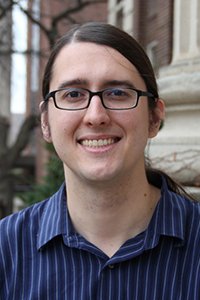Professor Jason Goodpaster
Professor Jason Goodpaster
Assistant Professor
Department of Chemistry
University of Minnesota
Advancements in Machine Learning and Quantum Embedding for Large Scale Simulations
Large, condensed phase, and extended systems impose a challenge for theoretical studies due to the compromise between accuracy and computational cost in their calculations. We present two methods that show exciting promise for treating this compromise: machine learning and quantum embedding. We exploit machine learning methods to solve this accuracy and computational cost trade-off by leveraging large data sets to train on highly accurate calculations using small molecules and then apply them to larger systems. We are developing a method to train a neural network potential with high-level wavefunction theory on targeted systems
of interest that are able to describe bond breaking. We combine density functional theory calculations and higher level ab initio wavefunction calculations, such as CASPT2, to train our neural network potentials. We first train our neural network at the DFT level of theory. Using an adaptive active learning training scheme, we retrained the neural network potential to a CASPT2 level of accuracy. Quantum embedding methodology exploits the locality of chemical interactions to allow for accurate yet computationally efficient calculations to be performed on complex systems. Quantum embedding allows for the partitioning of the system into two regions. One is treated at a highly accurate level of theory using wave function theory methods, and the other is treated at the more computationally efficient level of DFT. We discuss our recent advancements for quantum embedding, specifically for systems with complicated electronic structure such as homogeneous and heterogeneous catalysts. Together, we believe both methodologies can allow for complex systems to be studied at a significantly reduced computational cost.
Jason Goodpaster
Professor Goodpaster obtained his PhD under the guidance of Thomas F. Miller III at Caltech and continued his postdoctoral studies with Martin Head-Gordon and Alexis Bell at Lawrence Berkeley National Laboratory. He joined the department of chemistry at the University of Minnesota in 2016 where is work focus on the development of quantum embedding theories and machine learning methodologies. He won the NSF CAREER award and The Camille and Henry Dreyfus Machine Learning award in 2020.
